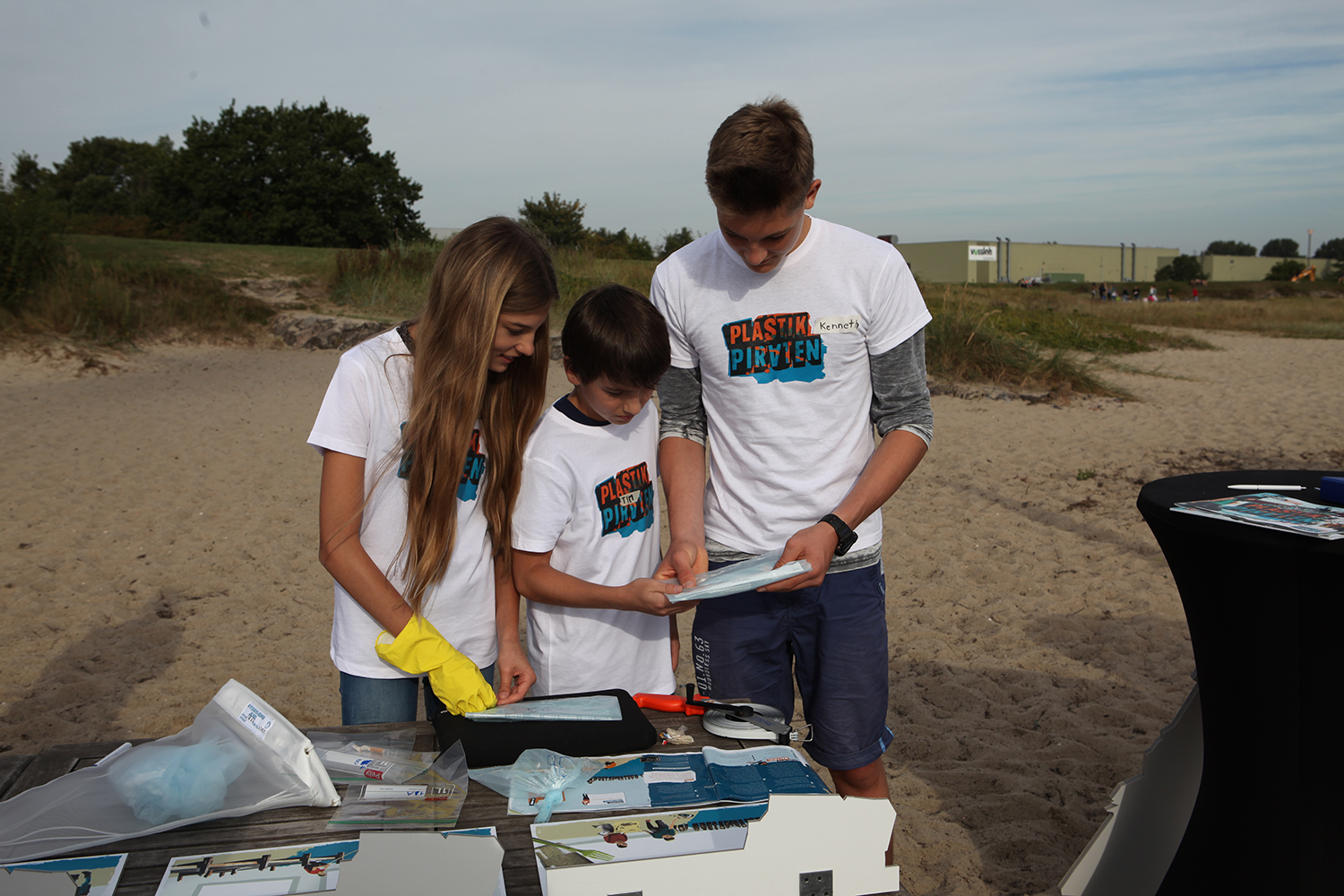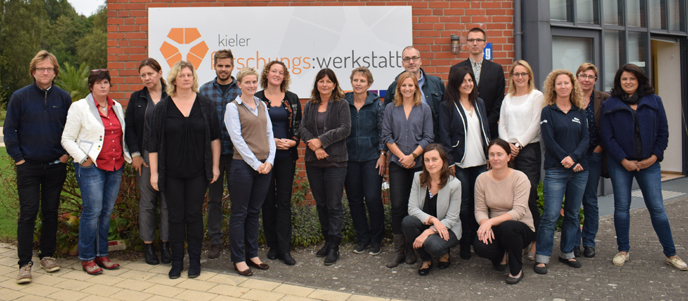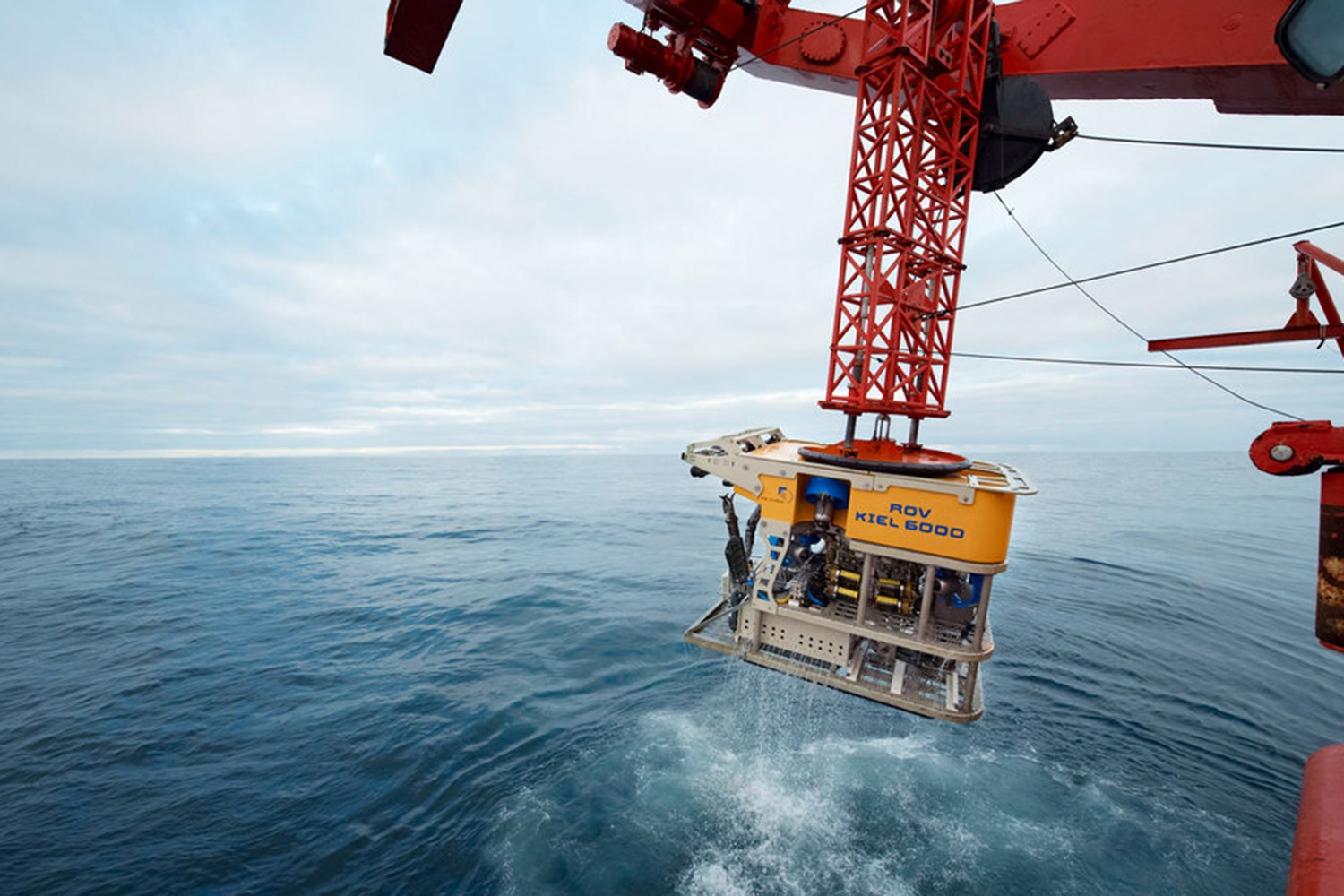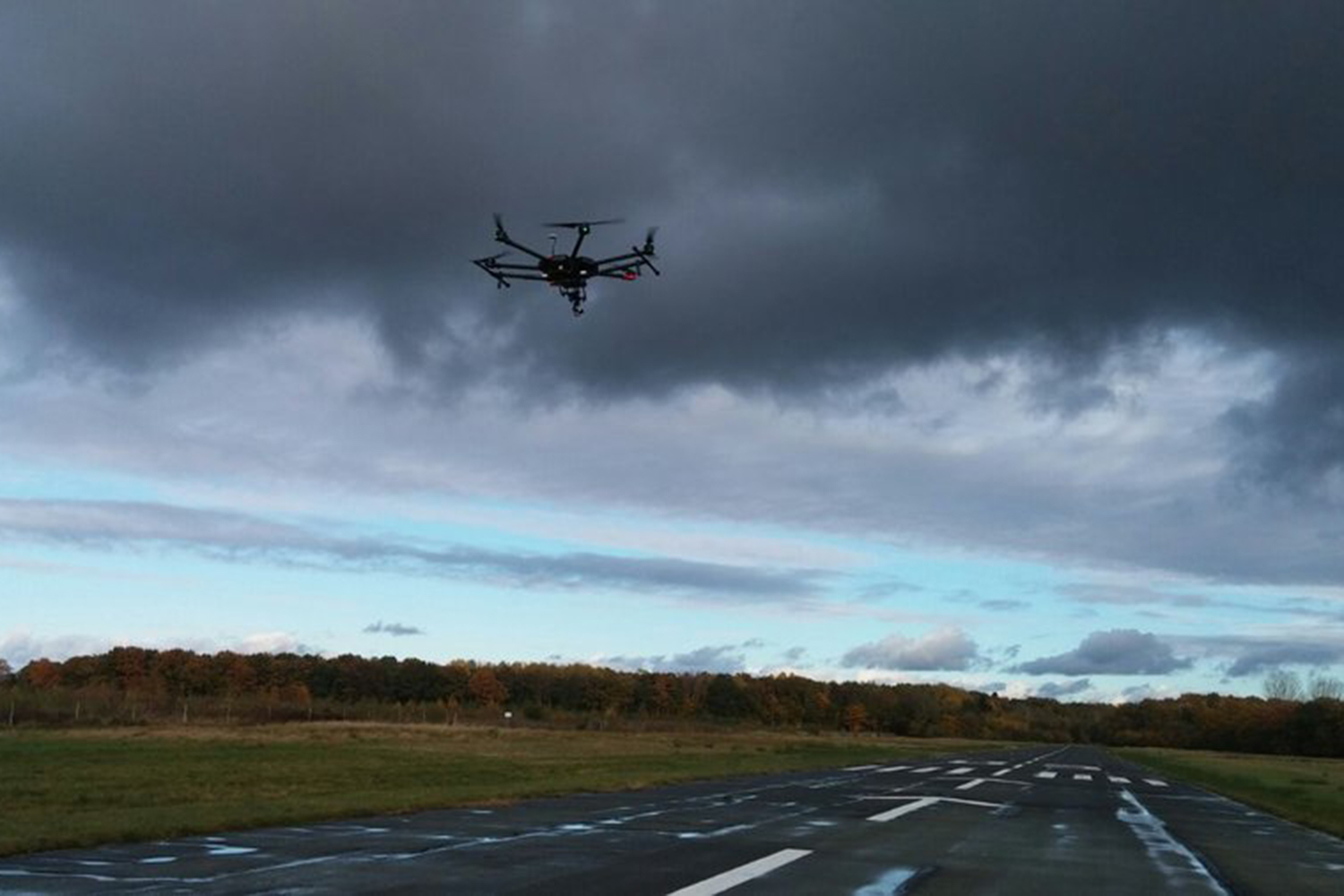Today the nation-wide citizen science initiative "Plastic pirates – The sea begins here" of the Year of Science is making its start, in order to measure plastic pollution in rivers and to increase public awareness of the problem. Until November 18th, young people will themselves become scientists: school classes and youth groups will fish micro plastic from streams and rivers with long, fine mesh nets, collect plastic on the shore and document the result on a digital map under www.wissenschaftsjahr.de/jugendaktion
A group of students from the Friedrich-Schiller High School in Preetz kicked off the project at Falkenstein beach on the Kiel Fjord today and undertook the first study. All results will be scientifically evaluated afterwards by the 'Kiel Forschungswerkstatt', a set of laboratories at Kiel University open to school classes. The students' laboratory is a partner of the initiative and is supported by the Cluster of Excellence "The Future Ocean".
"Climate change, overfishing and litter are threatening the largest habitat on the planet", says Federal Research Minister Johanna Wanka. "We need a new trend towards sustainable use of the oceans. This is what we want to draw young people's attention to with the intitiative 'Plastic pirates'.
Many Germans would accept additional costs for environmentally friendly alternatives
After all many Germans are already prepared to contribute to the protection of the seas and oceans: According to a forsa survey, 86 percent say that they would accept higher costs if food producers increasingly would stop using plastic packaging and use environmentally friendlier, but possibly more expensive alternatives. Even among interviewees with a monthly net household income under 1,500 Euro, 78 percent would still be willing to do so, according to the result of the forsa survey.
More research on the topic of plastic waste desired
Nearly all say that information is important: 90 percent of the interviewees think that research on plastic pollution in the seas and oceans should be funded by the government. Moreover, 87 percent believe that the impact of plastic waste on the health of humans is not sufficiently understood. About half of the interviewees (53 percent) did not know that many cosmetic articles contain small plastic particles – so-called micro plastics – which reach the seas through the use of these products. In order to support research on plastic waste pollution, the Federal Ministry for Education and Research started a funding scheme "Plastic in the environment" in June 2016.
Shortly before the kick-off of the youth action Plastic pirates, ARTE – media, partner of the Science Year 2016*17 – took up the topic: On September 17th at 21:45 pm, ARTE broadcast the documentary "Mikroplastik im Meer" ("Microplastics in the Ocean"). At www.arte.tv/meerentdecken interactive and multimedia-based background information on the topic plastic in the ocean is presented. After the kick-off on the Kiel Fjord, photo material will be available for download under www.wissenschaftsjahr.de/presse
You can find further information on the Year of Science here
www.wissenschaftsjahr.de
Year of Science 2016* 17 - Seas und Oceans
Marine research is the topic of the Year of Science 2016*17. Oceans and seas cover 71 percent of our planet. They are a climate machine, a source of nutrition, an economic space – and they provide a habitat for many plants and animals. Scientists have studied the oceans for centuries; and yet they are still mysterious and largely unexplored.
The Year of Science 2016*17 – Seas and Oceans deals with the exploration of waters, their protection and sustainable use. The Years of Science are a joint initiative of the Federal Ministry for Education and Research (BMBF) and "Wissenschaft im Dialog" (Science in Dialogue, WID). As a key instrument of science communication, they raise public awareness on research. The German Marine Research Consortium (KDM) is a professional partner of the Year of Science 2016*17.
Press contact
Editorial office Year of Science 2016*17- Seas and Oceans
Hans-Georg Moek & Christine Rutke
Phone: +49 (0)30 308811-70
Contact:
Friederike Balzereit, Public Relations, Cluster of Excellence "The Future Ocean"
Phone +49 (0)431 880-3032
fbalzereit@uv.uni-kiel.de
…



